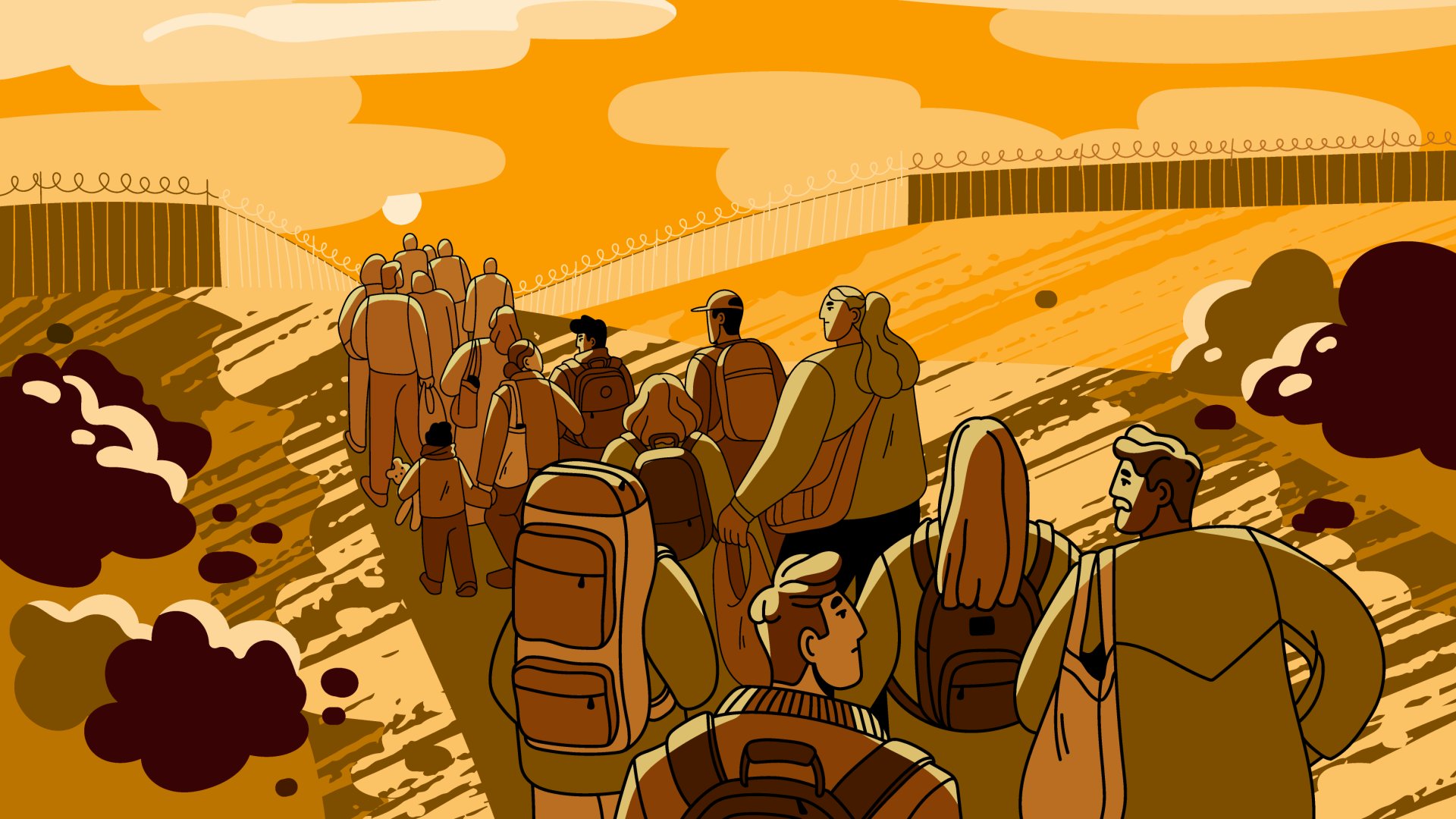6 Myths on Migration: We have checked them
Migration policy is again high on the political agenda and in public debate in Europe. In an interview with our partner, the Mixed Migration Centre, we debunk some of the most popular myths about migration.
Myth: Migration is totally out of control.
Irregular migration is really exaggerated because it gets so much public and media attention. People might almost think that more people are entering Europe irregularly than regularly. It's exactly the opposite. Every year, more than 2 million people arrive in Europe legally on all kinds of permits – basically, work visas or student visas – compared to at most a few 100,000 people in total arriving irregularly over land and sea. There's a big difference there. In general, most people in the world don't migrate at all. They stay quite close to where they were born. If people migrate, most do so within their own countries. If they do migrate further away, most do so in a legal manner. And then there's a small minority that migrates irregularly. But if you follow the media, you might almost think that's exactly the other way around. I think it's a very unhelpful portrayal of migration that feeds into a false narrative that things are completely out of control and numbers are unmanageable. Even now, when the numbers of people arriving in Europe along irregular land and sea routes are going up again, for a rich continent of 550 million people this is perfectly manageable if we make the right investments and don’t panic over relatively small numbers.
Myth: Tens of millions or even more people will move from South to North due to climate change.
The evidence simply does not support that. Of course, there is a lot of movement, a lot of displacement due to climate change. But most of those people stay within their own countries or move short distances, because usually those most affected by environmental factors due to climate change have already run out of all coping mechanisms. They can’t afford long international migration journeys that cost thousands of dollars. Certainly, a lot of people will be and are already moving due to climate change and related shocks and stresses like floods and hurricanes. That's certainly happening and it's probably very likely to increase. But the direction and distance, that's a myth.
Myth: Smugglers lure people into embarking on these long, dangerous and irregular migration journeys.
It's simply not true. The MMC has shown the evidence based on 25,000 interviews. When you ask, “What was the main influence on your decision to migrate?” smugglers come in eighth – after friends or family at the destination or in home countries. Smugglers are not a big influence on people's decision to migrate.
Myth: All smugglers are evil criminals/benign travel agents, providing a good service to migrants.
If you're more pro migration, there is a tendency to portray smugglers as benign travel agents providing a service. If your point of view is more on the political right, smugglers are portrayed as evil criminals or explicitly branded as human traffickers. It can be either or: Some smugglers are evil criminals and some smugglers do simply provide a service. This myth needs constant debunking.
Myth: You can stop irregular migration by addressing the root causes or by fighting smugglers.
Singling out one element and thinking that’s enough to stop migration, not realizing that you need a much more comprehensive package, is a myth. What is very often forgotten is why people choose their destinations. The fact that there is labor demand in many European countries is also a reason migrants come to Europe. Whether in the informal sector or if they manage to legalize their situation, migrants find jobs because of the need for migrant labor. So, thinking that you can address migration by just addressing some of the reasons people leave their origin countries or by trying to fight the smugglers is simply not going to work.
Myth: Being a refugee and having economic motivations for movement are mutually exclusive.
What you see a lot in debates is: If you are a refugee, your whole identity should be reduced to being a refugee. There's a tendency to strip them of their agency and any sort of normal human rational decision-making about where to go, what to do, whom and what to bring. It’s important to push back there: Those two things can go together: You might be a genuine refugee with a very serious need for international protection, but of course like every other human being you make decisions based on where you think your future is going to be the best.
The Mixed Migration Centre is a research centre dedicated to data collection, research, analysis and policy and programme development in the field of mixed migration. It has regional centres in Africa, Asia and the Pacific, Europe and Latin America, and a global team based in Copenhagen, Geneva and Brussels. It aims to improve the understanding of mixed migration, positively influence global and regional migration policies, contribute to evidence-based solutions for migrants and people on the move, and advance the public and policy debate on mixed migration.

